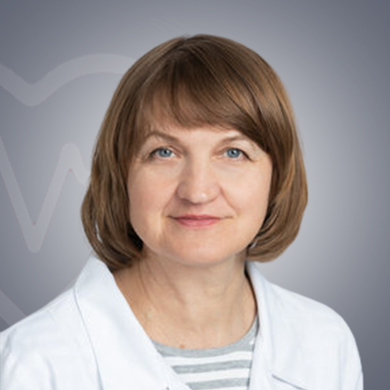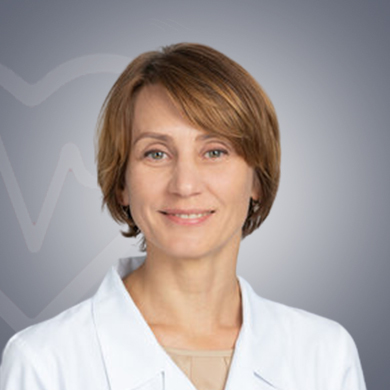
Dr. Danguole Vildaite is a specialized Gynecologist in Lithuania. And one of the most sought after medical specialists in Vilnius, Lithuania. The doctor has over 14 Years of experience and is associated with Kardiolita Hospital, Vilnius.
Association and Memberships Dr. Danguole Vildaite is part of:
Qualifications :
Hospital Address :
Kardiolitos klinikos
What is the medical expertise of Dr Danguole Vildaite?

Dr. Ramune Skirmantaite is a specialized Gynecologist in Lithuania. And one of the most sought after medical specialists in Vilnius, Lithuania. The doctor has over 10 Years of experience and is associated with Kardiolita Hospital, Vilnius.
Association and Memberships Dr. Ramune Skirmantaite is part of:
Qualifications :
Hospital Address :
Kardiolitos klinikos
Please make sure to see your doctor using Telemedicine before you even board a flight
Listed below are some of the top Fertility Specialists available for online consultation in Vilnius, Lithuania:
Given below are some of the most popular hospitals in Vilnius, Lithuania where Fertility Specialists work:
A fertility specialist is a doctor who specializes in diagnosing and treating fertility problems, to help people who are unsuccessfully trying to have a baby. Fertility doctors treat conditions related to both male and female infertility.
A fertility doctor is also a reproductive endocrinologist who practices obstetrics and gynecology called reproductive endocrinology & infertility (REI). It is a field of medicine that studies hormonal functioning as it is related to reproduction and infertility in both men and women. An infertility workup also includes an endometrial biopsy to determine whether imbalanced hormone levels are affecting the endometrium.
Once a fertility specialist has received as much information as he or she could from the infertility workup, they will recommend suitable fertility treatment options. Common fertility-related conditions treated by fertility specialists include ovulation problems, hormonal disorders, polycystic ovarian syndrome (PCOS), weight or age-related infertility, endometriosis, fibroids, blocked fallopian tubes, azoospermia, abnormal sperm production, fertility-related to certain genetic conditions.
A student willing to become a fertility specialist needs to clear a medical entrance test to pursue a five-and-half-a-year MBBS course. This includes both academic education as well as on-field training. After this, they need to earn a Doctor of Medicine (MD) degree. The MD course will be for 3 years. Earning an MD degree is a prerequisite for more specialized knowledge in reproductive medicine. Typically, a fertility doctor follows the educational path of a GYN/OB before getting specialized education.
Steps to become a fertility specialist:
A fertility specialist specializes in the treatment of fertility issues. But there may be other conditions related to the male and female reproductive system that can be treated by a fertility doctor.
Some common conditions treated by a fertility expert are listed below:
Before infertility testing, a fertility specialist works to understand your overall sexual habits in order to make recommendations to increase your chances of getting pregnant. An evaluation for infertility must be done in a focused way to determine all relevant factors and should include the female as well as male partners. The least invasive methods that help detect the most common causes of infertility must be done first.
The following tests may be recommended as part of your infertility evaluation:
Fertility specialists are technically gynecologists or urologists who have had additional training in dealing with issues related to the reproductive organs. There are various reasons your doctor might refer you to a fertility specialist, some of which are given below:
Much of the first appointment with a fertility specialist will focus on the review of your overall medical history and discussion about the possibility of male-factor issues. The fertility specialist may ask you to have blood tests done or go for a pelvic exam, and might also prescribe tests for the male or female partner. If these tests are already been done, the doctor will review, and then discuss the results with you.
Make sure that you write down all questions that come to your mind beforehand and share them with your doctor because this is the opportunity to understand what might happen next and what decisions you need to make to get desired results. Always feel free to clear your doubts with your medical team. It is their core responsibility to educate you and also respond to your concerns.
When you visit for the first time, the fertility doctor would want to determine whether there are any medical issues in your or your partner’s history that may lead to an underlying medical condition that is resulting in infertility that might need further evaluation. The next steps can involve the evaluation of the ovaries, the Fallopian tubes, and the sperm count.
Top Medical Specialities in Vilnius, Lithuania are: